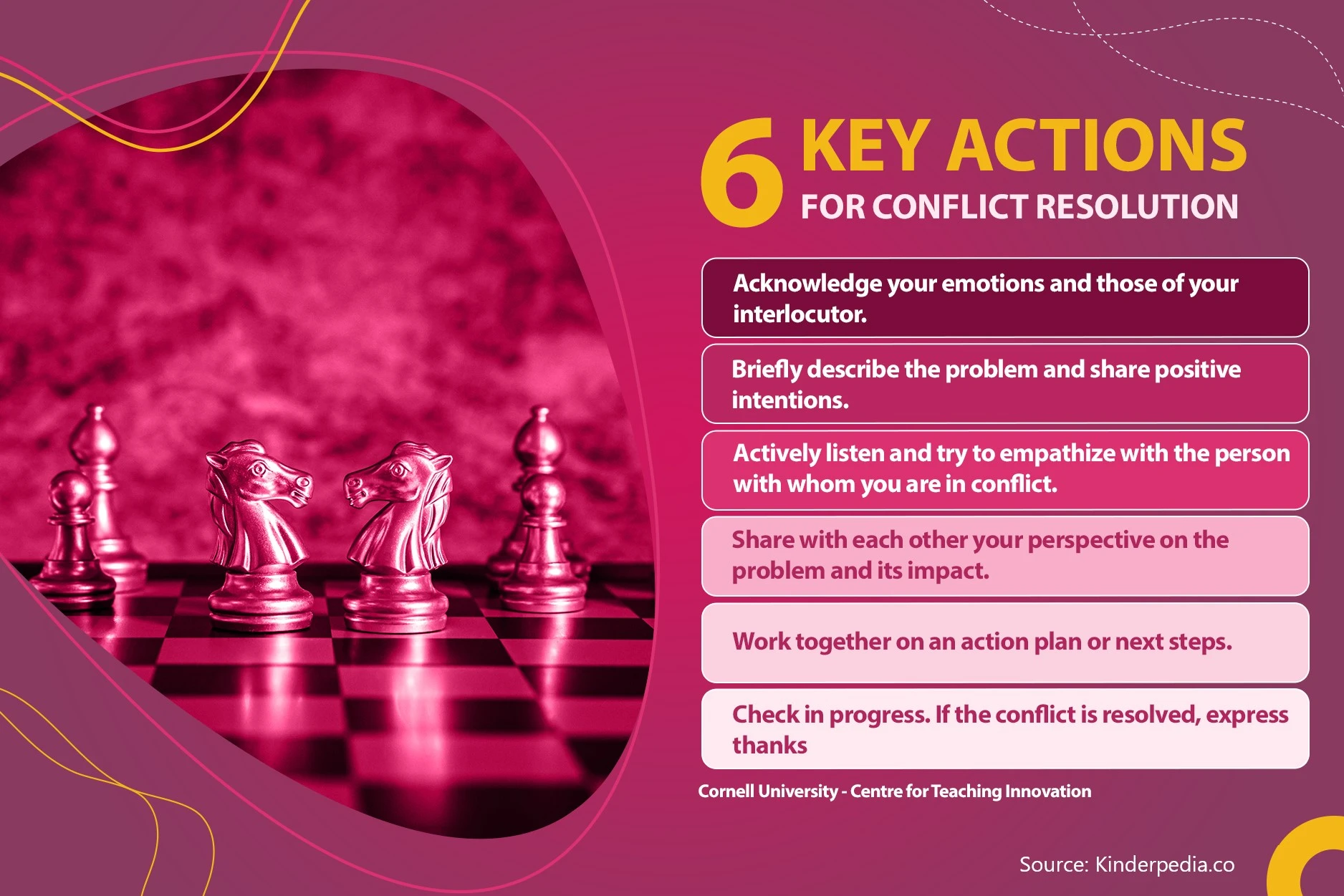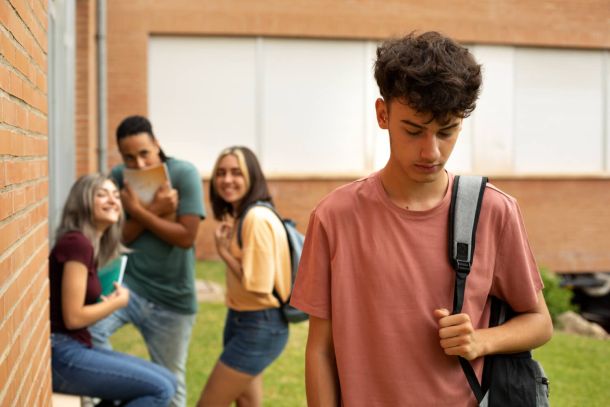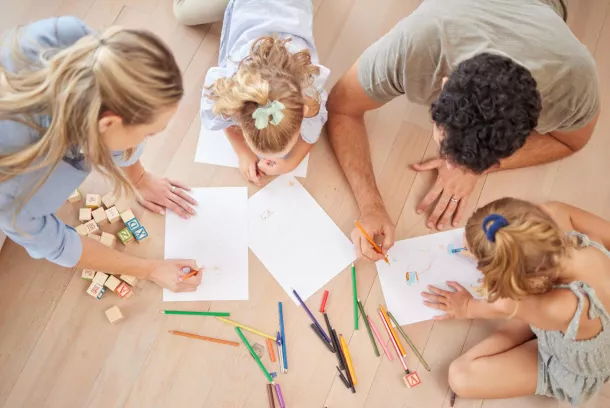
Fears in the school-family partnership: identifying and managing them
The role of the family in a child's education is crucial, and research lines highlight the impact of the relationship between the family environment and the child's educational outcomes.
Studies have shown that 70.63% of children's development is influenced by the family, and children's school adjustment is smoother when the school-family partnership is strong and present, influencing it by 74.47%.
"Parental presence can transform school culture." S. L. Lightfoot
Fear inhibits the relationship between school and family.
Michael Thompson, The Fear Equation, 2008, talks about the fears that parents and teachers might have in an educational context.
Triggers for fears that parents often face
Parenting is inherently difficult and no one is an expert in this vast field. Every parent is always experimenting and trying to get better at raising and caring for their child. Once in school, there are a lot of challenges and situations that challenge parents.
This line has circulated a lot in social media, and it is obvious that parents' mistakes in child-rearing are exposed through the child's behaviour at nursery, school or peer group. All parents know that they have made mistakes with their children, but they don't always know in what way these mistakes were made or how they manifest themselves. By identifying this fear, parents may understand that it is natural to make mistakes and behaviours can change, especially for children.
Every parent often feels a mix of feelings between hope, love, fear, and anxiety. Parents are very vulnerable when it comes to their children. They want to show them and give them as much love as possible, and they hope that they will do their best, but at the same time, there are a lot of fears.
It may be hard to believe this fear, but teachers do sometimes get to know a pupil very well, through behaviours other than those a parent sees at home. As children grow up and become more independent, they do not reveal all facets of their personality to their parents. When they become teenagers, they may voluntarily or involuntarily hide different aspects from their family, either because they feel they have grown up and don't want to tell everything, or because they prefer to talk to friends about things.
Teachers have huge power over children's futures. Because teachers often spend many hours of their day with their children, they also have a huge influence through the different actions and behaviours they display around their students.
Choosing the right school is one of the biggest challenges for families. Among parents' biggest fears is the fear that they will not choose a good enough school for their child. If they are not part of a large city with multiple choices in terms of education providers, be it formal or non-formal education, there are concerns among parents about making the best choice for their child's education.
Every adult is getting better and better in terms of professional experience, but this experience does not always help in relation to the child's school education.
Triggers for fears that teachers often face
The field of education is a complex and wide-ranging one, and the job of a teacher is a challenging one, whatever the level at which they work or whatever the environment in which they work. A Stanford University manager said there are three allied professions: medicine, education, and agriculture. All, he says, involve bringing out the best in biology. The doctor is trying to get the body's strongest immune response, the educator is trying to increase children's desire to learn, and the farmer is trying to get the best fruit from the seeds he plants. A farmer can be very good, but as in any season, there can be too much rain, too little, or an unexpected insect infestation.
Teachers are always seen by parents through the eyes of children, through what they tell at home about the teacher, transposed through their own experience. Very often, this subjectivity of transposition may not be very consistent with some of the real issues. That is why knowledge, communication, and teacher-family collaboration are essential. Parents should not only get to know the teacher through the children's stories, but it would be ideal for them to get to know each other much better face-to-face and be connected all the time.
If you teach well and effectively, it's not always the family or those around you who are grateful for it. All teachers have felt this at some point and probably needed a simple "Thank you!" or even a warm smile. Researchers have been saying since ancient times that a teacher's effectiveness is also influenced by the appreciation they receive from those around them, let alone their parents. Of course, there are plenty of factors that support student performance, but a healthy family-school partnership can be crucial.
Perceptions of the teaching profession have suffered greatly over time. Teachers are not sufficiently respected in our culture, which increasingly affects their work in the classroom.
As in any human interaction, communication is both a complex and fragile pillar, so inherent conflict situations can arise. Every teacher has experienced at least one difficult conflict situation at some point in time. This can be a serious source of fear about the relationship with the family.

7. Fear of not being understood by parents
How can teachers and parents move beyond their mutual fears?
Once again, the importance and role of family involvement in the child's education is clear. The first step is awareness of this need and immediate action by decision-makers and school managers, who have the main role in creating the basis for this solid partnership. A very important step is to identify and communicate the expectations that both parents and teachers have. Schools need to train teachers to work with different types of families, providing specific training in dealing with tense or challenging situations. Teachers trained in this way will feel more courageous, and more competent and, as a result, will be able to be more honest and more effective in dealing with parents.
Brene Brown's research shows us that those who have the courage to break through fear and shame and accept that they are imperfect people can come to terms with vulnerability and be happy!"The most surprising finding, to me, is that fear is not the most important barrier to courageous leadership. In fact, the bravest leaders we interviewed told us that they are afraid every day. The biggest barrier to courageous leadership is not fear, but how we react to fear: armor gets in the way," says Brené Brown.
How Kinderpedia supports family engagement in children's education
On Kinderpedia, parents find out in real time how their children’s day at school or nursery went: from attendance, grades, assignments, to mood, participation, or how much they ate and slept, in the case of younger students. When they are aware of their children’s projects and progress at school, parents can continue the educational process at home and support their children where they need it. Kinderpedia creates the environment for an effective partnership between school and family and places the student-teacher-parent collaboration right at the heart of learning.

Kinderpedia
The complete communication and management solution for schools and childcare centres.
Simplifies teachers' work and brings parents closer to their children's school progress.
Recommended articles
Want to improve your center quality? Kinderpedia is here to help! Not only do we provide thousands of informational content pieces like blog posts, podcasts, webinars and more, we are also makers of the #1 Rated and Reviewed Childcare Software.







